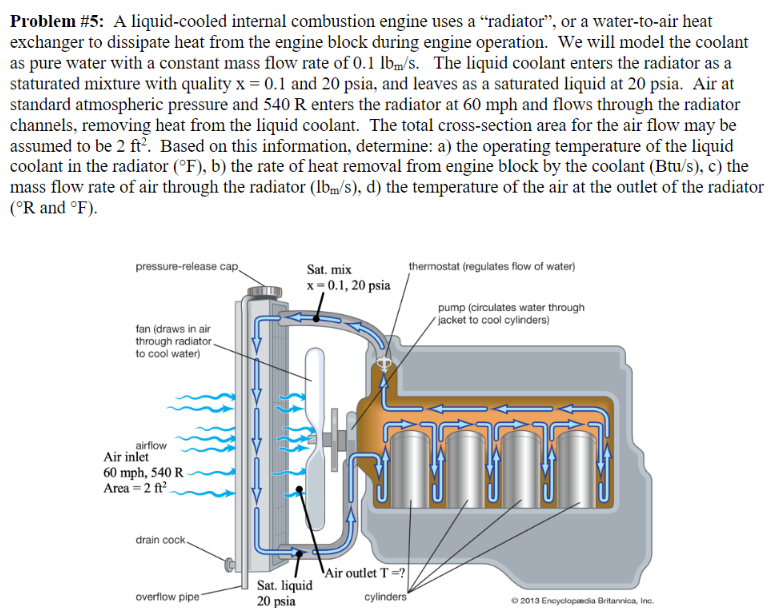Home /
Expert Answers /
Mechanical Engineering /
please-include-all-referenced-formulas-and-referenced-items-problem-5-a-liquid-cooled-internal-pa158
(Solved): Please include all referenced formulas and referenced items. Problem #5: A liquid-cooled internal ...
Please include all referenced formulas and referenced items.
Problem #5: A liquid-cooled internal combustion engine uses a "radiator", or a water-to-air heat exchanger to dissipate heat from the engine block during engine operation. We will model the coolant as pure water with a constant mass flow rate of 0.1 lbm/s. The liquid coolant enters the radiator as a staturated mixture with quality x = 0.1 and 20 psia, and leaves as a saturated liquid at 20 psia. Air at standard atmospheric pressure and 540 R enters the radiator at 60 mph and flows through the radiator channels, removing heat from the liquid coolant. The total cross-section area for the air flow may be assumed to be 2 ft². Based on this information, determine: a) the operating temperature of the liquid coolant in the radiator (°F), b) the rate of heat removal from engine block by the coolant (Btu/s), c) the mass flow rate of air through the radiator (Ibm/s), d) the temperature of the air at the outlet of the radiator (°R and °F). pressure-release cap fan (draws in air through radiator. to cool water) airflow Air inlet 60 mph, 540 R Area = 2 ft² drain cock overflow pipe Sat. mix x = 0.1, 20 psia Sat. liquid 20 psia thermostat (regulates flow of water) m N Air outlet T-? cylinders pump (circulates water through jacket to cool cylinders) © 2013 Encyclopaedia Britannica, Inc.
Expert Answer
Using steam tables At 20 psia, Hf = 196.3 btu/lbm Hg = 1156.2 btu/lbm Tsat = 227.9 F So, At entry point, H1 = 0.1
